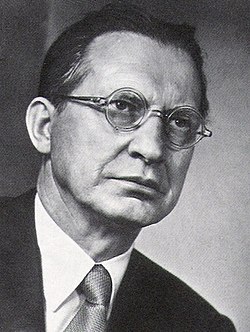| Office | Name | Party | Term |
|---|
| Prime Minister | Alcide De Gasperi | | DC | 26 July 1951–16 July 1953 |
| Deputy Prime Minister | Attilio Piccioni | | DC | 26 July 1951–16 July 1953 |
| Minister of Foreign Affairs | Alcide De Gasperi (ad interim) | | DC | 26 July 1951–16 July 1953 |
| Minister of the Interior | Mario Scelba | | DC | 26 July 1951–16 July 1953 |
| Minister of Italian Africa | Alcide De Gasperi (ad interim) | | DC | 26 July 1951–16 July 1953 |
| Minister of Grace and Justice | Adone Zoli | | DC | 26 July 1951–16 July 1953 |
| Minister of Budget | Giuseppe Pella | | DC | 26 July 1951–16 July 1953 |
| Minister of Finance | Ezio Vanoni | | DC | 26 July 1951–16 July 1953 |
| Minister of Treasury | Ezio Vanoni (ad interim) | | DC | 26 July 1951–2 February 1952 |
| Giuseppe Pella (ad interim) | | DC | 2 February 1952–16 July 1953 |
| Minister of Defence | Randolfo Pacciardi | | PRI | 26 July 1951–16 July 1953 |
| Minister of Public Education | Antonio Segni | | DC | 26 July 1951–16 July 1953 |
| Minister of Public Works | Salvatore Aldisio | | DC | 26 July 1951–16 July 1953 |
| Minister of Agriculture and Forests | Amintore Fanfani | | DC | 26 July 1951–16 July 1953 |
| Minister of Transport | Piero Malvestiti | | DC | 26 July 1951–16 July 1953 |
| Minister of Post and Telecommunications | Giuseppe Spataro | | DC | 26 July 1951–16 July 1953 |
| Minister of Industry and Commerce | Pietro Campilli | | DC | 26 July 1951–16 July 1953 |
| Minister of Foreign Trade | Ugo La Malfa | | PRI | 26 July 1951–16 July 1953 |
| Minister of Merchant Navy | Paolo Cappa | | DC | 26 July 1951–16 July 1953 |
| Minister of Labour and Social Security | Leopoldo Rubinacci | | DC | 26 July 1951–16 July 1953 |
| Minister of European Affairs (without portfolio) | Carlo Sforza | | PRI | 26 July 1951–16 July 1953 |
|
| Secretary of the Council of Ministers | Giulio Andreotti | | DC | 26 July 1951–16 July 1953 |

